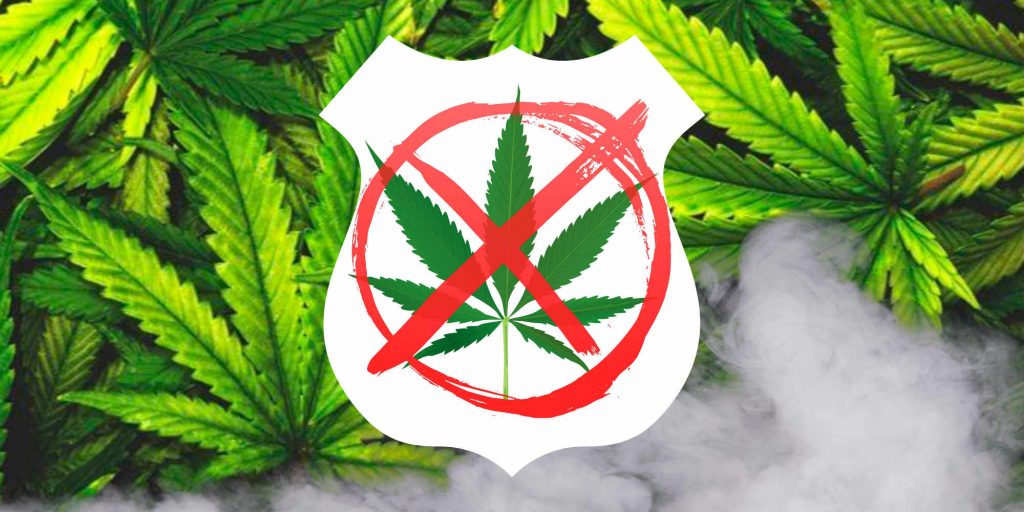More and more states have legalized, to some degree, the consumption of marijuana. With that, many officers in those states have expressed their desire to “go green” as well. However, much to their chagrin, they are still prohibited from doing so.
“But state law says I can smoke pot now!” Yes, state law may say just that; however federal law (aka “the law of the land”) says you cannot. So which federal provisions are applicable? We start with the very basic proposition that marijuana is, and remains, classified as a Schedule I controlled substance under the Controlled Substances Act (21 U.S.C. § 812). Furthermore, the federal firearms provisions (18 U.S.C. § 922(g)(3)) specifies that no person “who is an unlawful user of or addicted to any controlled substances” may “possess…or…receive any firearm or ammunition.” It is further unlawful for “any person to sell or otherwise dispose of any firearm or ammunition to any person knowing or having reasonable cause to believe that such person…is an unlawful user of or addicted to any controlled substance.”
The ATF promulgated regulations implementing section 922 and defining a person “who is an unlawful user of or addicted to any controlled substance.” (27 C.F.R. § 478.11). The ATF also developed Form 4473 which requires that all purchasers of firearms must indicate whether they are an unlawful user of or addicted to a controlled substance. The ATF also issued an “Open Letter to All Federal Firearms Licensees” on September 21, 2011, which states, in part, that:
[A]ny person who uses or is addicted to marijuana, regardless of whether his or her State has passed legislation authorizing marijuana use for medicinal purposes, is an unlawful user of or addicted to a controlled substance, and is prohibited by Federal law from possessing firearms or ammunition. Such persons should answer “yes” to question 11.e. on ATF Form 4473 . . . and you may not transfer firearms or ammunition to them. Further, if you are aware that the potential transferee is in possession of a card authorizing the possession and use of marijuana under State law, then you have “reasonable cause to believe” that the person is an unlawful user of a controlled substance. As such, you may not transfer firearms or ammunition to the person, even if the person answered “no” to question 11.e. on ATF Form 4473.
Additionally, the case of Wilson v. Lynch, et al., No. 14-15700 (9th Cir. 2016) out of the Ninth Circuit, is instructive on this issue. The Wilson case involved a woman in Nevada who had a medical marijuana card pursuant to state law (the plaintiff). On a side note, the plaintiff claimed that she never purchased or used marijuana with the medical card, but rather obtained it for a purely “political purpose.” When she attempted to purchase a firearm, the store denied her on the basis of having a medical marijuana card. She filed suit alleging a violation of her civil liberties, including the 2nd Amendment. The federal District Court dismissed her complaint, and a 3-judge panel of the 9th Circuit affirmed the dismissal of her complaint.
The Court’s decision was based upon the existence of the statutes, regulations, and guidance previously cited to above. Further, the Court cited two of its prior decisions in support of its conclusion. The Ninth Circuit previously observed that “The [Controlled Substances Act] prohibits the manufacture, distribution, and possession of marijuana. Anyone in any state who possesses distributes, or manufactures marijuana for medical or recreational purposes (or attempts or conspires to do so) is committing a federal crime.” United States v. McIntosh, No. 15-10117, 2016 WL 4363168, at *11 n.5 (9th Cir. Aug. 16, 2016). Further, in United States v. Dugan, 657 F.3d 998 (9th Cir. 2011), the Court held that the Second Amendment does not protect the rights of unlawful drug users to bear arms.
But how does all of this apply to police officers? Quite simply, we look to the essential job functions of the position of a police officer for the answer. One of the indisputable essential job functions of a police officer is to lawfully possess and use a firearm and ammunition. If a police officer must carry a firearm, and federal law prohibits a person from using marijuana and possessing a firearm, then the logical answer is: police officers cannot consume marijuana, whether on- or off-duty and whether the consumption of marijuana has been legalized to some degree in that state. In fact, the ATF memo’s reasoning makes it highly questionable as to how an agency could be legally justified in issuing a firearm or ammunition to a known user of marijuana for any reason without violating federal law.
By Eric Astupenas, Esq. Daigle Law Group, LLC Contractor and Eric Daigle, Esq. Principle of Daigle Law Group, LLC
This publication is produced to provide general information on the topic presented. It is distributed with the understanding that the publisher (Daigle Law Group, LLC.) is not engaged in rendering legal or professional services. Although this publication is prepared by professionals, it should not be used as a substitute for professional services. If legal or other advice is required, the services of a legal professional should be sought.
